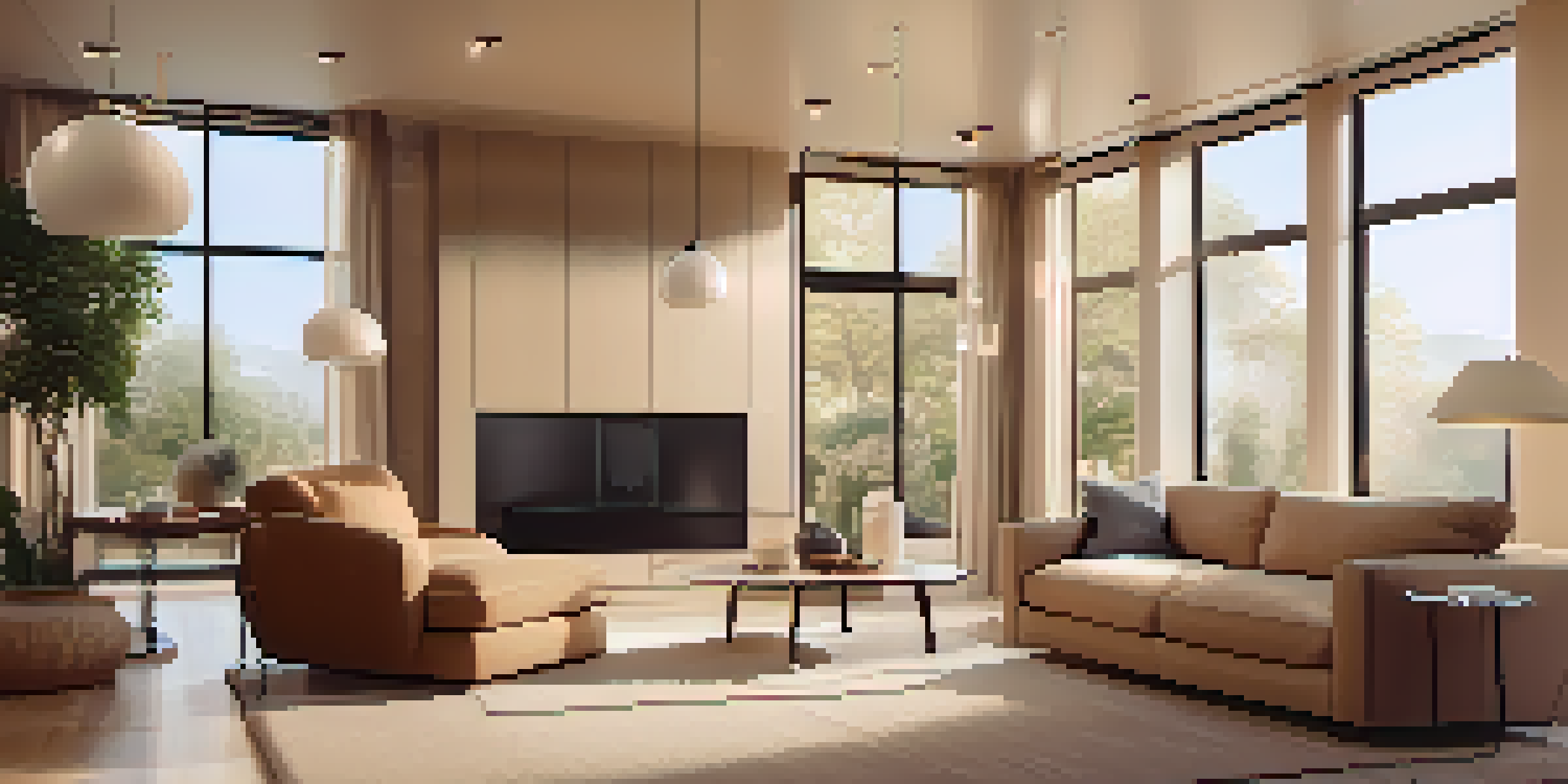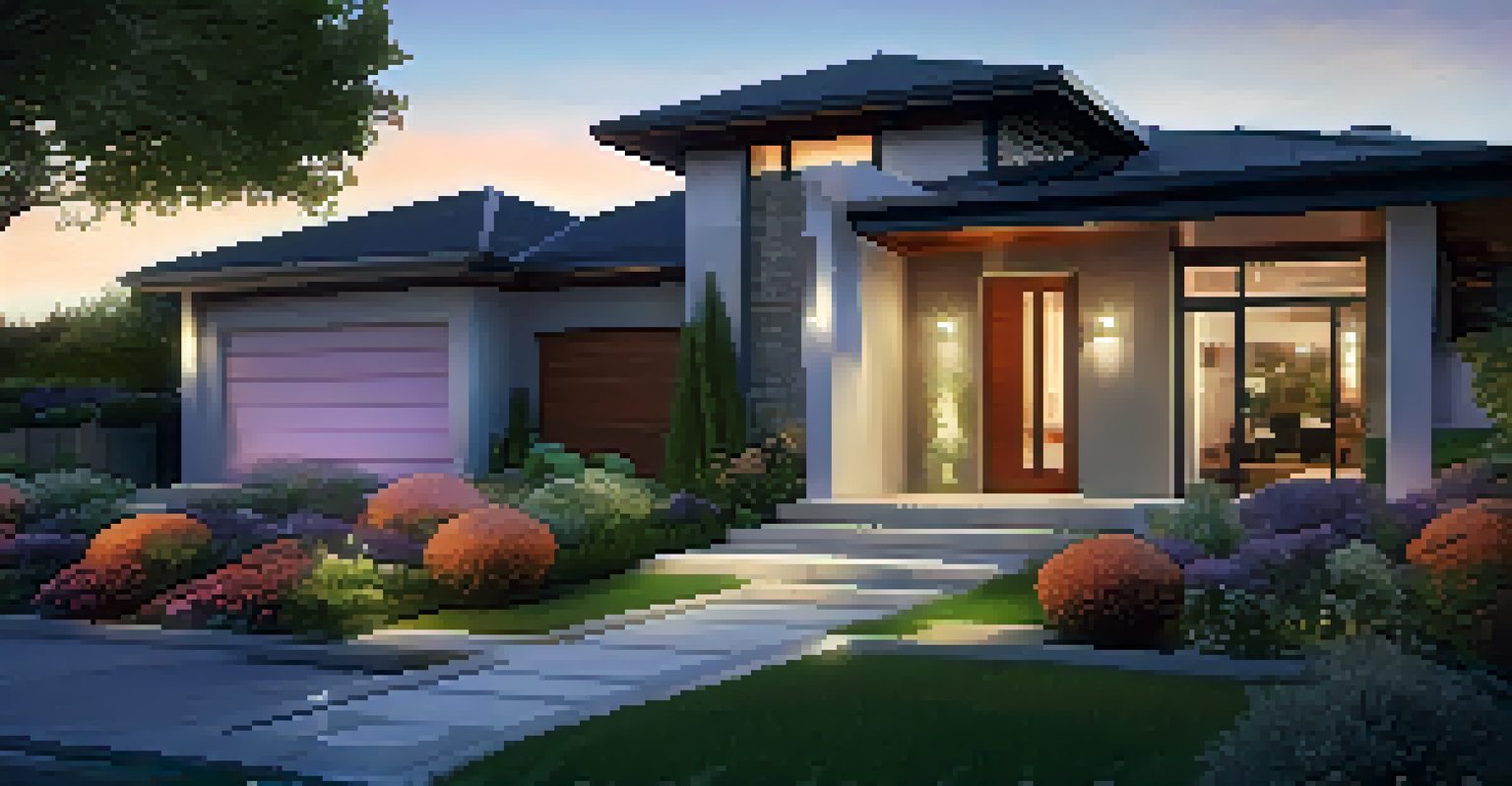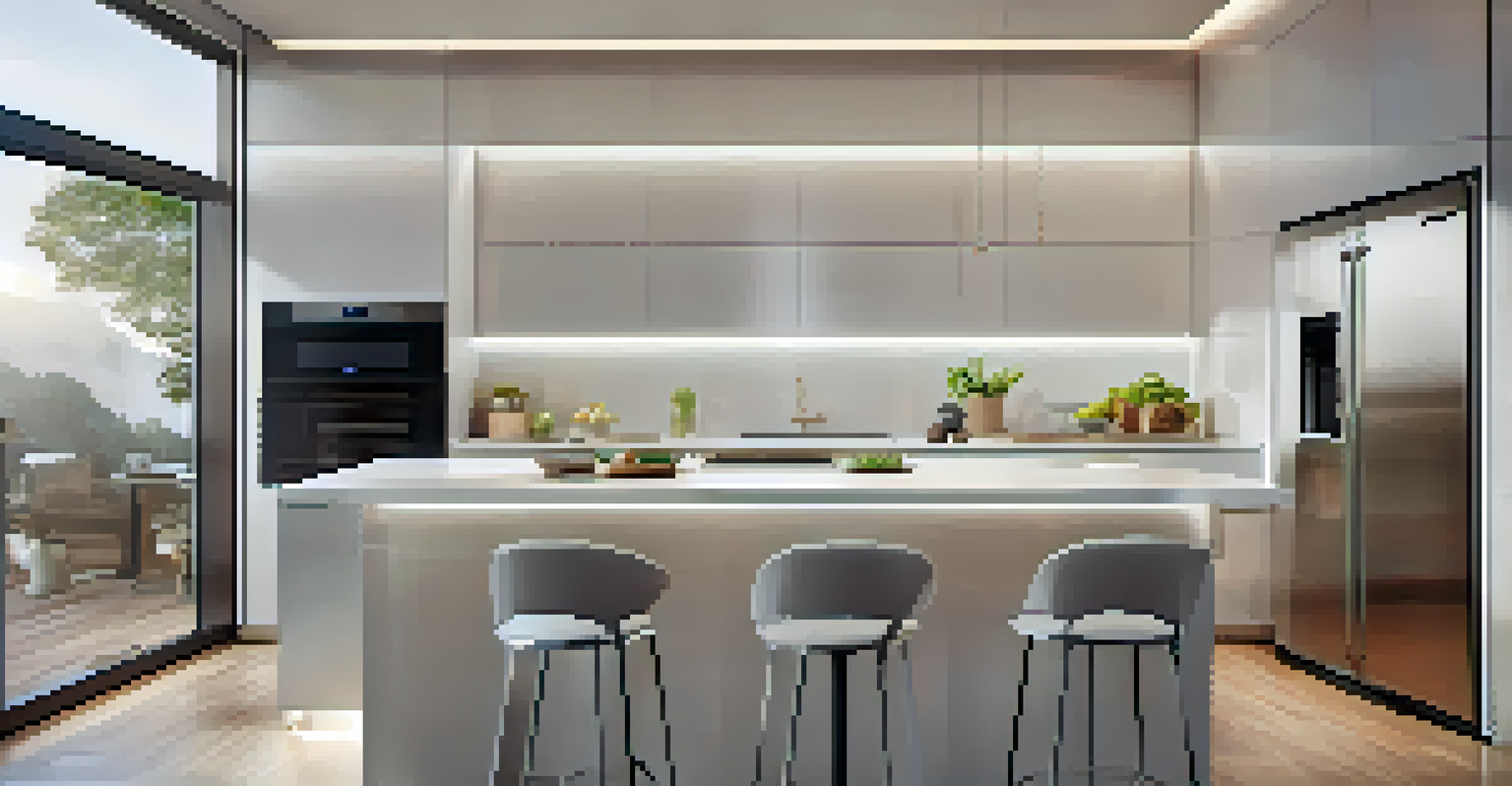The Role of Smart Devices in Home Automation Systems

Understanding Smart Devices and Home Automation
Smart devices, like smart speakers and thermostats, are gadgets that connect to the internet, allowing for remote control and automation. They can communicate with each other and create a seamless ecosystem within your home. Home automation involves using these smart devices to manage household functions, enhancing convenience and efficiency.
Technology is best when it brings people together.
Imagine walking into your home, and the lights automatically turn on, and your favorite playlist begins to play. This is the magic of home automation powered by smart devices. They bring a level of comfort and personalization that traditional home setups simply can't match.
With the rise of the Internet of Things (IoT), smart devices have become more prevalent. They not only offer convenience but also enable energy savings and improved security, making them essential components of modern living.
Enhancing Convenience with Smart Devices
One of the most significant advantages of smart devices is the convenience they offer. You can control lights, locks, and appliances from your smartphone, regardless of where you are. This means no more fumbling for keys or worrying if you left the lights on.

For instance, imagine you're at work and suddenly remember that you forgot to turn off the oven. With a smart device, you can check and turn it off remotely, providing peace of mind. This level of control is not just convenient; it can also prevent potential accidents.
Smart Devices Enhance Home Living
Smart devices automate household functions, offering convenience, energy savings, and improved security.
Moreover, scheduling features allow you to automate daily tasks, such as setting your coffee maker to brew at a specific time. This hands-free approach lets you focus on what truly matters while your smart devices handle the details.
Boosting Energy Efficiency with Automation
Smart devices play a crucial role in enhancing energy efficiency in homes. Devices like smart thermostats learn your heating and cooling preferences, adjusting temperatures automatically to save energy. This not only reduces your bills but also lessens your carbon footprint.
The future is already here — it's just not very evenly distributed.
Consider a smart thermostat that lowers the temperature when you're not home and warms up the house just before you arrive. This level of automation ensures you're comfortable without wasting energy, making it an eco-friendly choice.
Additionally, smart lighting systems allow you to control the brightness or schedule lights to turn off when not in use. By optimizing energy consumption, smart devices contribute to a more sustainable lifestyle.
Improving Home Security with Smart Devices
Home security has been revolutionized by smart devices like cameras, doorbells, and locks. With these tools, you can monitor your home in real-time from your smartphone. This added layer of security gives homeowners peace of mind, whether they are at work or on vacation.
Imagine receiving a notification on your phone when someone rings your smart doorbell. You can see and communicate with them without being at home, making it feel like someone is always watching. These devices deter potential intruders and enhance your overall security strategy.
Energy Efficiency with Smart Tech
Smart devices optimize energy use, reducing bills and minimizing environmental impact through automation.
Moreover, smart locks allow you to control access to your home remotely. You can grant temporary access to guests or service providers without needing to hand over physical keys, adding both convenience and security.
Integrating Voice Assistants for Seamless Control
Voice assistants like Amazon Alexa and Google Assistant have become integral to home automation. They allow you to control various smart devices using simple voice commands. This hands-free method makes interacting with your home more intuitive and user-friendly.
For example, you can say, 'Turn off the living room lights,' and your voice assistant will execute the command instantly. This level of integration enhances the experience of using smart devices, making it accessible to everyone, regardless of tech-savviness.
Additionally, voice assistants can set reminders, provide updates, and even play music, making them versatile companions in your automated home. They serve as a central hub, connecting various devices for a cohesive system.
Customizing Your Home Environment with Smart Devices
Smart devices allow you to tailor your home environment to your preferences. From adjusting lighting based on mood to controlling the temperature for comfort, the possibilities are endless. This personalization creates a living space that truly reflects your lifestyle.
Imagine having a scene set for movie night, where the lights dim, curtains close, and the temperature adjusts—all with a single command. Smart devices enable these customizations, enhancing your experience and making your home feel inviting.
Voice Assistants Simplify Control
Integrating voice assistants allows for intuitive, hands-free management of smart devices, enhancing user experience.
Moreover, many smart devices offer flexibility through apps that allow for further customization. You can create schedules, control settings remotely, and even receive notifications, giving you complete control over your home environment.
The Future of Smart Devices in Home Automation
As technology continues to evolve, the future of smart devices in home automation looks promising. Innovations in artificial intelligence and machine learning are making these devices smarter and more intuitive. They will not only respond to commands but also anticipate your needs over time.
Picture a home that learns your routines and adjusts the environment accordingly, creating a truly personalized experience. This level of automation will enhance comfort, security, and energy efficiency like never before.

Moreover, as more devices become interconnected, the potential for a fully automated home increases. This interconnectedness is paving the way for a future where smart homes are the norm, making everyday living easier and more enjoyable.